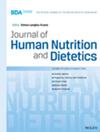Development and Validation of Healthy and Unhealthy Plant-Based Diet Propensity Scores in European Children, Adolescents and Adults From the I.Family Study
Abstract
Introduction
Plant-based dietary patterns may reduce the risk of chronic diseases, but their benefits and risks in younger populations remain unclear due to variations in diet quality and nutrient adequacy. Robust tools to assess adherence to these patterns are essential. The aim of this study was to develop and validate three plant-based diet propensity (PBDP) scores – overall, healthy and unhealthy – to capture plant-based dietary patterns and assess their associations with nutrient intakes and health indicators in children, adolescents and adults.
Methods
This cross-sectional study of children, adolescents and adults used data from the I.Family study (n = 15,780 participants) from eight European countries. Dietary intake was assessed using a food frequency questionnaire. The overall PBDP score was constructed by categorising all plant-based food groups as positive and animal-based food groups as negative. The healthy PBDP emphasised healthy plant-based food groups, whereas the unhealthy PBDP emphasised less healthy plant-based food groups. Validity was assessed through correlations with nutrient intakes and comparison across demographic groups. Associations with health indicators were also analysed.
Results
PBDP scores showed expected associations with nutrient intakes. Higher overall and healthy PBDP scores were observed in females, adults, individuals with higher parental educational levels and those from Belgium and Spain. The healthy PBDP score was associated with higher HDL cholesterol, improved bone stiffness and lower triglycerides. The unhealthy PBDP score was associated with lower HDL cholesterol in adults, but not in children or adolescents.
Conclusion
PBDP scores describe plant-based dietary patterns across demographic groups and are valid and reliable in adults. The findings highlight challenges in assessing dietary patterns in children and adolescents. Future research should address these challenges to enhance the validity of PBDP scores in younger populations and further explore their potential in guiding dietary recommendations across all age groups.

 求助内容:
求助内容: 应助结果提醒方式:
应助结果提醒方式:


